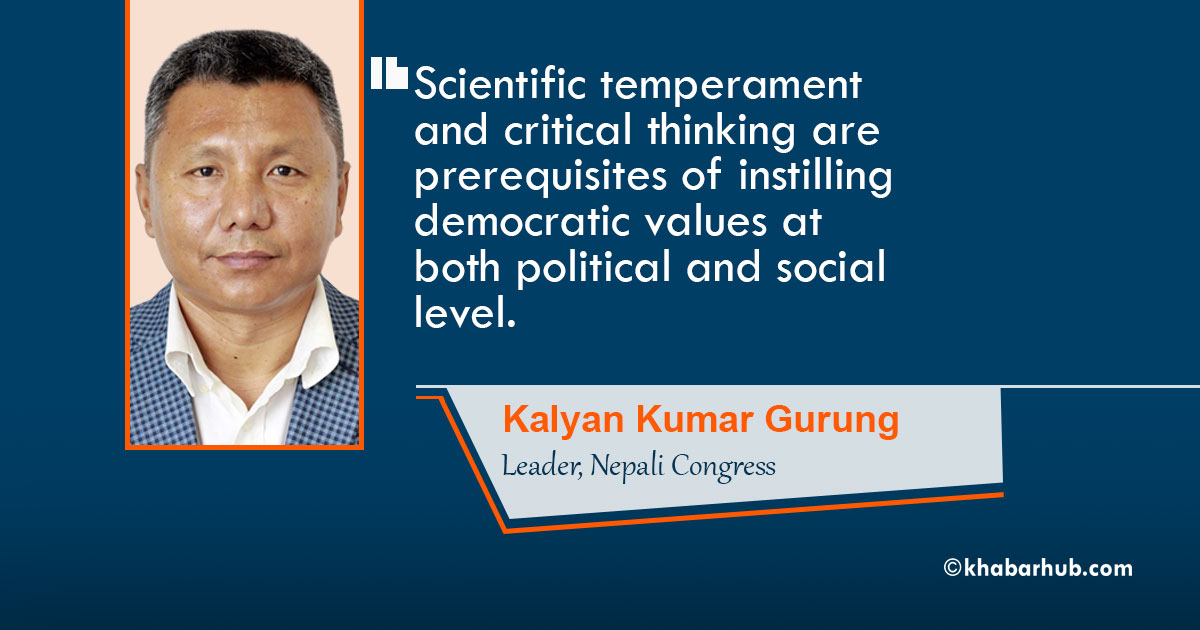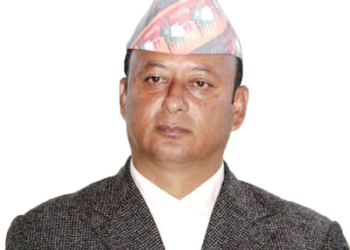Looking at the political, social, economic and cultural dimensions of Nepalese society, it is undoubtedly a feudal society. The Nepalese culture ridden with the hierarchy of caste used ‘capital and wealth’ as an instrument of exploitation to suppress others. Dynamics of ‘flow of capital’ and its consequent effect in setting up factories (and industries) all across the country were completely missing in Nepal.
Extremism in political ideology, though present in every society around the world, does not find its general acceptance in overall political discourse in a democracy.
Besides being the victim of caste discrimination, gender violence, regionalism, bigotry, urban-rural divide, and social inequality Nepalese society is in danger of becoming a playground of anarchical forces operating from both inside and outside the country.
Scientific temperament and critical thinking are prerequisites of instilling democratic values at both political and social level. Extremism in political ideology, though present in every society around the world, does not find its general acceptance in overall political discourse in a democracy.
No alternative exists for politicians other than being morally upright and socially responsible for politicians. Parochialism and political extremism are often used by politicians for their own personal interests to rise up in power politics. However, there is a danger involved in parochial politics as it establishes anarchy leading to impunity all around if not checked in time. Observing the trend of politics and behavior of politicians in Nepal, it is but certain that Nepalese society is heading towards anarchy and impunity.
Corruption is rising and hoarding black money is becoming a trend for corrupt politicians and their clique.
Laws are circumvented on paper by using the expertise of unscrupulous legal minds and dishonest capitalists in collusion with opportunist politicians. Laws instead of serving the people are serving the interests of select few hands in glove with each other to promote their personal private interests over the public welfare.
Corruption is rising and hoarding black money is becoming a trend for corrupt politicians and their clique.
Money (not merit) speaks everywhere, be it appointment, transfer or promotion of staff in government departments. Political parties in Nepal select and elect their candidates for political appointments based on the donations, not the work and individual ability plus honesty of approach. Such candidates are not driven by the spirit of service rather they safeguard their own personal interests to make more money by abusing political power.
In such a grim situation, government policy looks after the interests of those who buy their posts and positions in politics by money. Common citizens are fooled by the rhetoric used by politicians and they are forced to vote only to be betrayed later. Has not Nepal reached the crossroad?
Politicians are busy saving their own positions and farmers are fending for themselves.
Laxity in the execution of laws in Nepal has made the poor suffer. Their exploitation has not stopped. Money lenders even today lends Rs 500 and add interest in few years to inflate the amount to Rs 500,000. Cyclical poverty stops them from lodging complaints as they do not have enough money to hire lawyers. The sad part of Nepalese politics is that these exploitative money lenders have access to powerful politicians and the poor are left to be on the fence watching over their own plight of exploitation.
Let us take the examples of farmers. They have neither sufficient land nor water. Dependent upon monsoon, they also struggle to get market for their agricultural produce. Politicians are busy saving their own positions and farmers are fending for themselves. Sugarcane farmers in Terai never get paid in time forcing them to take debt at exorbitantly high rates. The government-owned banks are nowhere in sight to help them in the absence of concrete policy.
Roads projects get more money while consumer committee is left in the lurch because there are more opportunities to make money in roads and nothing comes from the consumer welfare program.
Loot of government land is rampant. Even forest land is being seized for selling forest resources by land mafia and private organizations having political influence. Employment is on the rise. Foods are adulterated. Whom to trust? Where to go? Everywhere agents of corruption are working. The truly democratic culture within Nepal is the only glimmer of hope because state power lies with the elected MPs (Member of Parliament) – the ruling party as well as opposition parties. Are they listening? Let us hope, they are.
(Views expressed in this article are the author’s own and do not necessarily reflect the stance of Khabarhub.)









Comment